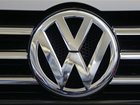A rare Sumatran rhino in Indonesia is pregnant with her second baby and expected to give birth in May, raising new hope for the critically endangered species, conservationists said Tuesday.
Only about 100 Sumatran rhinos are believed to exist in the entire world so the pregnancy is seen as tremendously good news for those trying to save the animals from extinction.
 Full Story
Full Story
U.S. animal rights activists filed an unusual lawsuit on Tuesday on behalf of a macaque monkey who snapped selfie photographs, arguing it owned the photos rather than the nature photographer involved.
People for the Ethical Treatment of Animals (PETA) filed the suit in federal court in San Francisco on behalf of six-year-old Naruto, seeking to have the macaque "declared the author and owner of his photograph."
 Full Story
Full Story
An Irishman was extradited to the United States to face charges of trafficking in rhinoceros horns and faces five years in prison if guilty, U.S. prosecutors said Tuesday.
Patrick Sheridan is accused of using a "straw buyer" to purchase two black rhino horns from a taxidermist in Texas, prosecutors said. Sheridan and co-defendant and fellow Irishman Michael Slattery then took the horns to New York to sell on the black market.
 Full Story
Full Story
Major U.S. companies including Walmart, Starbucks and Nike vowed Wednesday to move completely to renewable energy in the long term as part of a global effort against climate change.
The non-profit Climate Group announced the latest additions to its campaign during a week of events in New York that aim to build momentum for a global agreement to fight climate change.
 Full Story
Full Story
Indonesia has revoked the licence of a timber supplier and suspended the operations of three palm oil plantation operators over fires that have blanketed Southeast Asia in haze, an official said Tuesday.
The illegal blazes in Indonesia have sent smog floating over the region in recent weeks, causing thousands to fall ill, worsening air quality and reducing visibility in the archipelago, as well as in neighboring Singapore and Malaysia.
 Full Story
Full Story
On the remote rocky shores of the western United States, low tide brings visitors to wave-splashed tide pools to marvel at ocean wonders usually hidden from view.
But recently, largely missing from the bounty are the biggest draw: a rainbow-hued array of starfish.
 Full Story
Full Story
A critically endangered Sumatran elephant who had patrolled Indonesia's jungles to help protect threatened habitats has been killed for his tusks, an official said Monday, sparking a surge of anger online.
Yongki, a tame creature who worked with teams of elephant keepers, was found dead close to the camp where he lived in a national park on the western island of Sumatra, said park official Timbul Batubara.
 Full Story
Full Story
China on Sunday launched a new, smaller type of rocket from its "Long March" family which will be primarily used for carrying satellites aloft, state media reported, as the country races ahead with an ambitious space programme.
The Long March-6, a newly developed carrier rocket which uses liquid propellant, took off from a launch base in the northern province of Shanxi on Sunday morning carrying 20 "micro" satellites, the official Xinhua news agency said.
 Full Story
Full Story
The U.S. Environmental Protection Agency said Friday that Volkswagen intentionally skirted clean air laws by using a piece of software that enabled about 500,000 of its diesel cars to emit fewer smog-causing pollutants during testing than in real-world driving conditions.
The agency ordered VW to fix the cars at its own expense. The German automaker also faces billions of dollars in fines, although exact amounts were not determined.
 Full Story
Full Story
The space technology that saw the Soviet Union propel the first dog, man and woman into orbit has gone on show in London -- most of it being exhibited outside Russia for the first time.
Speaking at the opening of the exhibition at the Science Museum, which runs until March 13, the first woman in space Valentina Tereshkova recalled her affection for the spacecraft that took her into orbit for three days in 1963.
 Full Story
Full Story



